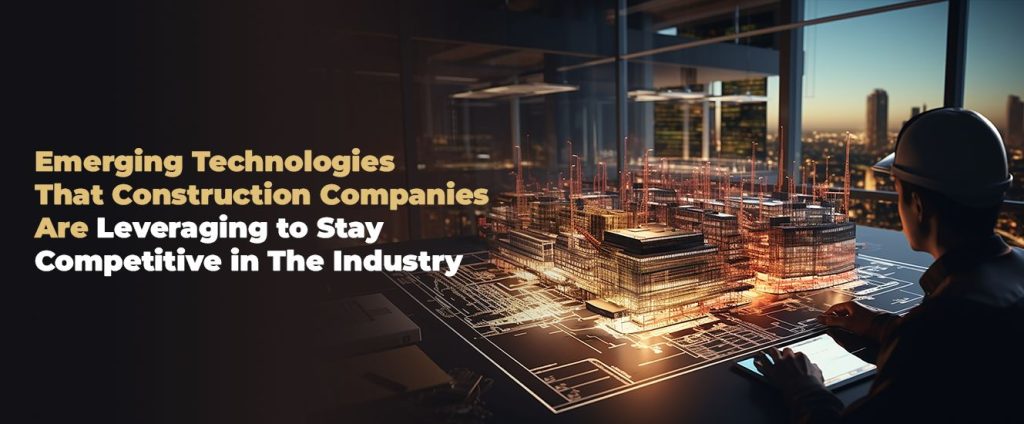
The construction industry has long been associated with hard hats and blueprints, a bastion of tradition in a world increasingly enamored with digital bells and whistles. But beneath the surface, a tectonic shift is underway, driven by a wave of emerging technologies poised to revolutionize the way we build.
Gone are the days of siloed processes and paper-heavy workflows. Today’s construction companies are embracing cutting-edge tools to boost efficiency, minimize waste, and enhance safety. Let’s delve into some of the key tech trends transforming the industry landscape.
Emerging Technologies in the Construction Industry
1. Building Information Modeling (BIM)
BIM is no longer a buzzword, but a game-changer. This 3D modeling software transcends mere blueprints, creating a virtual replica of the entire project, from structural elements to MEP systems. BIM fosters seamless collaboration between architects, engineers, and contractors, enabling clash detection, resource optimization, and even virtual walkthroughs before a single brick is laid. The result? Reduced errors, streamlined workflows, and cost savings keep businesses competitive.
2. 3D Printing
Move over, concrete mixers – 3D printing is entering the construction arena. Imagine printing customized walls, intricate architectural elements, or even entire houses, layer by layer. This technology boasts remarkable potential for speed, waste reduction, and design flexibility. While still in its nascent stages, 3D printing holds the promise of revolutionizing affordable housing and disaster relief efforts.
3. Robotics
Bricklaying robots are no longer science fiction. These tireless machines are automating repetitive tasks, freeing up skilled workers for more complex jobs. From laying bricks with laser precision to hoisting heavy materials, robots are boosting productivity and safety on construction sites. As technology advances, expect even more sophisticated robots capable of handling increasingly intricate tasks.
4. Drones
Drones are no longer just hobbyist toys. Equipped with advanced sensors and cameras, they’re taking to the skies, providing aerial insights that were once a logistical nightmare. From site surveys and progress monitoring to safety inspections and material deliveries, drones are streamlining workflows and boosting decision-making capabilities.
5. Artificial Intelligence (AI)
AI is infiltrating every corner of the industry, from optimizing logistics and scheduling to predicting equipment failures and managing complex material supply chains. AI-powered platforms are analyzing vast amounts of data, uncovering hidden patterns, and generating valuable insights that fuel better decision-making and risk mitigation strategies.
Summing Up
These are just a glimpse into the tech toolbox transforming the construction industry. As these technologies mature and converge, we can expect even more innovative applications. From self-healing concrete to bio-inspired architecture, the future of construction promises to be as sustainable and intelligent as it is awe-inspiring.
This digital transformation presents both challenges and opportunities for construction companies. Adapting to new technologies and upskilling workforces will be crucial for staying ahead of the curve. But for those who embrace the change, the future holds the potential for a more efficient, sustainable, and ultimately, more human-centric built environment.
So, the next time you see a construction site, don’t just see towering cranes and bustling workers. See a canvas of innovation, where technology is reshaping the very foundation of how we build our world. The future of construction is here, and it’s being built on a bed of code, sensors, and endless possibilities.
